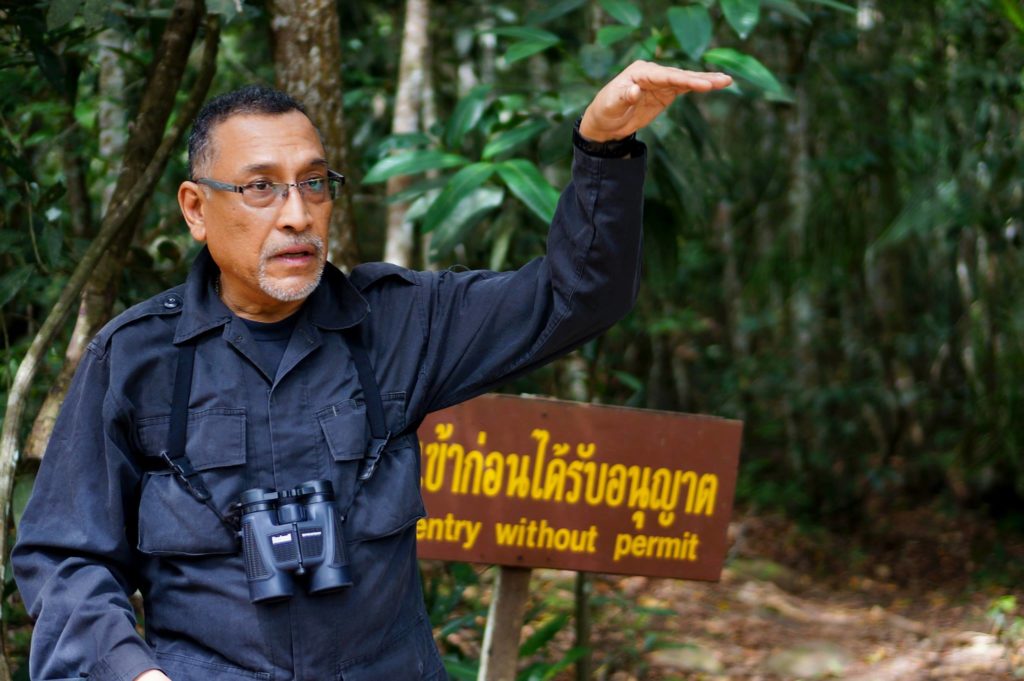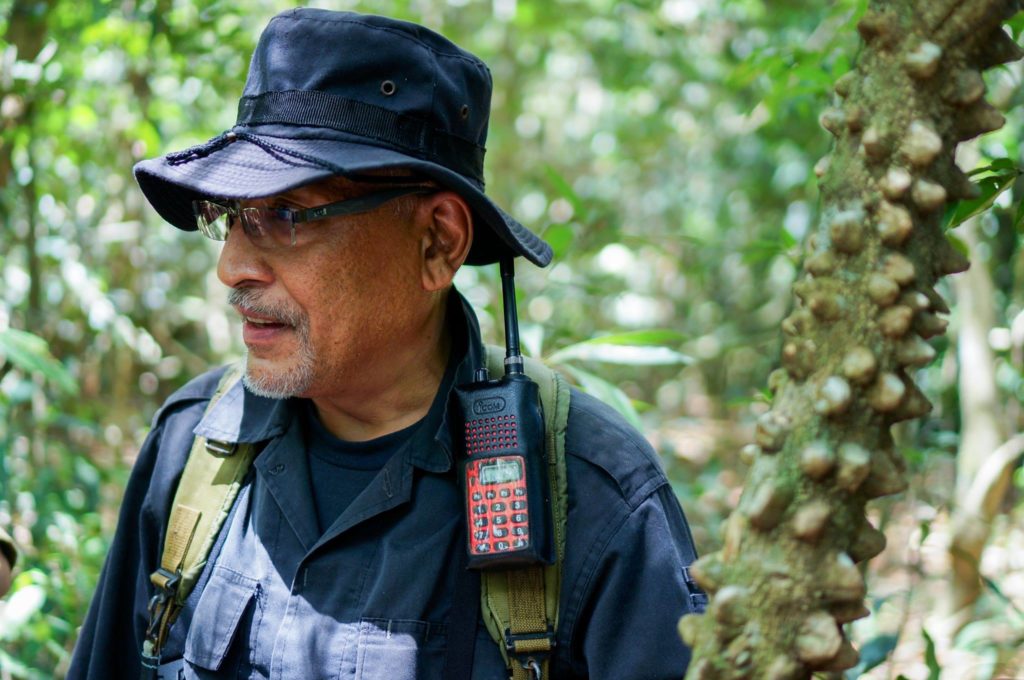Dr. Ramesh Boonratana is a professor of the Biological Sciences at MUIC (Mahidol University International College), part of the greater Mahidol University, Thailand’s most prestigious University. His areas include Biodiversity Conservation & Ecosystem Protection, Protected Area Planning & Management, Participatory Conservation & Natural Resources Co-Management, Training & Capacity Development of PA Staff & Stakeholders, Responsible Tourism, Sustainable Tourism, Ecotourism, and Community-based Tourism. He teaches courses such as Conservation Biology; SE Asian Ecology; Introduction to Physical Anthropology; Hominid Evolution & Primate Societies; Ecotourism; Integrated Biology; and Heritage Conservation.
While studying at Mahidol University, I took his Ecotourism class, and decided to reach out to him recently to ask him some questions about his life experiences, both personal and professional.
Dr. Boonratana, photo taken by one of his students on a MUIC field trip
Q: What are some of the projects that you have worked on with Ecotourism? What were some challenges and solutions that you found?
- I do not work on the typical Ecotourism projects per se; I have mostly been involved in training and developing the capacities of individuals and agencies with interest in the subject matter, ranging from students to relevant government staff and practitioners.
- The training and capacity development activities of government staff and practitioners are through Thailand’s Ministry of Tourism and Ministry of Foreign Affairs, and have included participants from SE Asia, South Asia, Africa, Latin America, and the Caribbeans.
- Another area of involvement is through roundtable discussions at the regional level, and through the Forum for East Asia and Latin American countries
Q: How do you see your work affecting the future, and even the present?
- In some small ways, I am hopefully changing people’s mindset and attitude – those are the biggest obstacles to sustainable living.
Q: What is the best way, in your opinion, for people to be more ‘green’ in their everyday lives, both in developed places and undeveloped places?
- There is no one template for all destinations and peoples; the nature, type and degree of impacts depend on a number of parameters – the type of ecosystems, sensitivity of the destinations, cultural practices of the local peoples, and so on.
- Having said so, one should aim to reduce one’s impacts on the environment on the society in which one lives in, if one cannot avoid them.
- These include changing one’s practices – be it overuse, over harvest, over consumption etc., and making correct choices over the goods and services that one purchases or use.
Q: What is the best way you’ve found to engage students in their environment? What advice do you have for students who are passionate about the environment but are not sure how to make concrete changes in their careers?
- Field trips, going outdoors, travel, go off the beaten track…seeing and experiencing
- Being passionate about the environment does not necessarily mean that one should have a career in the environment in order to protect it.
- Be a businessperson, be a politician, be a celebrity – but be one who cares for the environment, be one that becomes an agent of change
Dr. Boonratana, photo taken by one of his students on a MUIC field trip.
Q: What other sustainable measures do you support/are involved in Thailand?
- I do not limit my work to Thailand only. I am actively involved in efforts to conserve biodiversity and in protecting ecosystems in a number of countries.
- However, one sustainable measure in Thailand that gains my respect and support is His Majesty the past King of Thailand’s sufficiency economy program and projects. I think it should be widely practiced.
Q: How has traveling changed your view of the world, and made you appreciate things?
- It definitely has. I’ve learned to respect, enjoy, and appreciate diversity – in every sense of the word – especially diversity of peoples, their cultures, their practices, their beliefs, and their opinions and perspective on things.
Q: What aspect of Thai culture interests you the most?
- Difficult to say – there’s too many. Probably “foods” being top of the list. Food aside, I would say the charm of her peoples – humility, mutual respect, courtesy, among others.
Q: What do think are some major challenges that prevent people from differing backgrounds from getting along, and what can help to alleviate these challenges?
- Fear of the unknown and the unfamiliar.
- Easy, get everyone to travel – especially politicians and religious leaders. Politicians should be required to go backpacking across diverse destinations and cultures for a year before they can be allowed to stand for any office.



